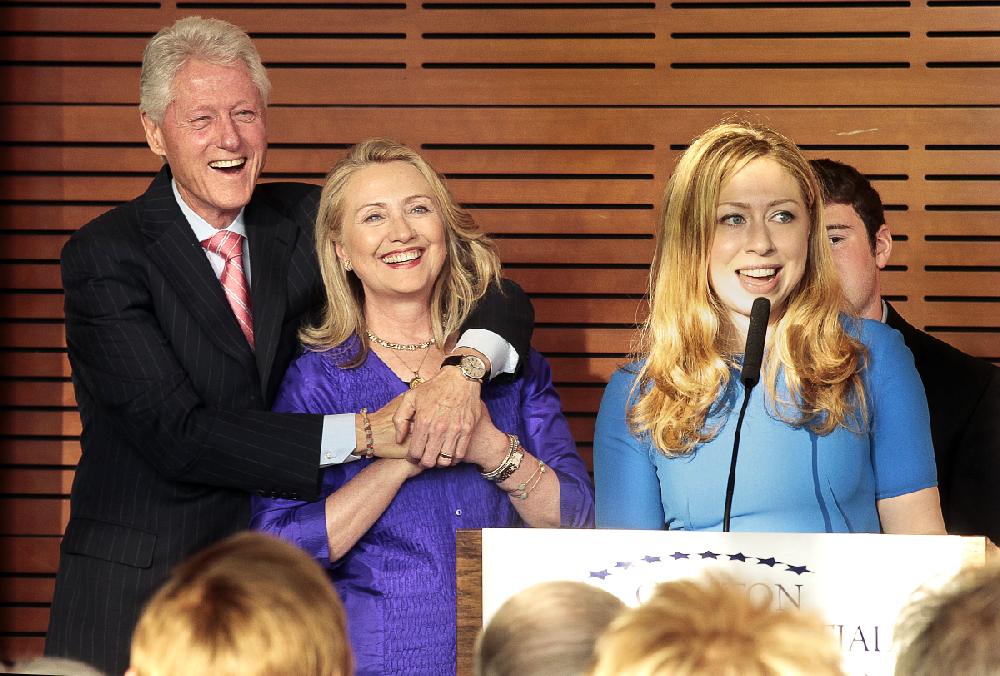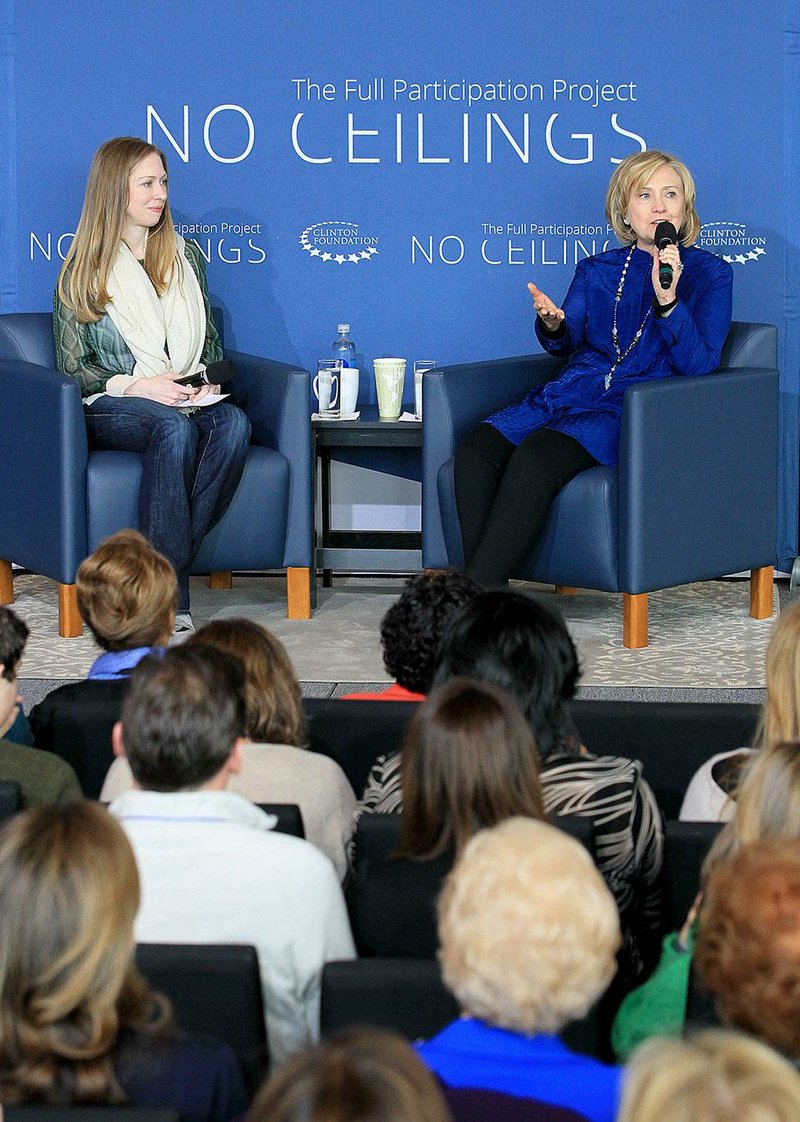Progress has been made in providing opportunities for girls and women in Arkansas and around the world in the 19 years since former U.S. first lady Hillary Rodham Clinton spoke on the topic at the U.N. Women's Conference in Beijing, she and Clinton Foundation Vice Chairman Chelsea Clinton said Saturday in Little Rock.

Clintons
For the future, the Clintons plan to use a progress report -- produced next year by the foundation -- to determine what's working, what's not and what's left to do.
"There isn't a nation on Earth that has realized what it could in economic prosperity because of those continuing barriers to women's participation," Hillary Clinton said Saturday during an event at the Clinton Presidential Center, part of weekend events marking the center's 10th anniversary.
The Clinton women head No Ceilings: The Full Participation Project, which seeks to advance opportunities for women and girls globally. The initiative is working to produce a data-supported evaluation of gender prosperity gaps that remain and the progress that has been made in addressing them during the past 20 years, according to the foundation.
On Saturday, Hillary Clinton reflected on her past efforts to advocate for children and families. Those efforts included the development of the Southern Bancorp, a rural development bank that she modeled after the Grameen Bank in Bangladesh; and the Arkansas Children's Hospital Home Instruction for Parents of Preschool Youngsters Program, a school-readiness program that she modeled after a project in Israel.
Several Arkansas leaders also talked about their efforts to improve the lives of women and girls across the state and globally.
For example, Arkansas has been working to raise the per capita income at a faster rate than is occurring nationwide, said Grant Tennille, director of the Arkansas Economic Development Commission.
"With a state with the population of 3 million people, it's not going to be possible to increase our per capita rate faster than the rest of the nation if half of our population is sitting on the sidelines," he said of women.
The state needs to do more, he said. As an example, the state has a goal of awarding more contracts to members of minority groups, but for good and "not so good" reasons, it doesn't include women in its definition of minority, he said. He didn't elaborate on those reasons.
Hillary Clinton said schools in Arkansas and across the nation need more resources and staff members, such as nurses, to ensure that problems with students, particularly impoverished students, are not missed.
The Clintons additionally highlighted the efforts of the Pine Bluff nonprofit Targeting Our People's Priorities with Service, of Heifer International, of the Arkansas Children's Hospital and of the Arkansas Single Parents Scholarship Fund.
Targeting Our People's Priorities with Service, which helps send young women to college, is providing opportunities and mentors for young women, Chief Executive Officer Annette Dove said, adding that reaching them early is the key to success.
People such as Dove work to show girls the possibilities for their futures, something Chelsea Clinton called closing the "imagination gap." Many young women don't imagine themselves in college, she said.
Nationwide, women and girls often face financial obstacles to prosperity, such as a lack of money for school, Hillary Clinton said.
Ruthanne Hill, executive director of the Arkansas Single Parents Scholarship Fund, awards about 2,500 scholarships each year and has given 35,000 total at a value of $22 million.
Globally, cultural norms often hinder the progress of women, particularly in areas where women are considered the primary caregivers, speakers said.
In parts of western Africa, women who are pregnant or caring for children are having trouble getting health care because the doctors in those areas are focused on treating Ebola patients, Chelsea Clinton said.
In India, some women have recently suffered and even died because of botched sterilizations performed by the government, she said. In many of those cases, the women's mothers-in-law pressured the women into getting the sterilizations because they've given birth to the expected number of children, Chelsea Clinton said.
Mothers-in-law in south Asia often expect their daughters-in-law to do the bulk of the caregiving and housework after they marry into the family, further preventing some women from entering the workforce, Hillary Clinton said.
"It takes a lot of careful, precise work to break through those barriers," she said, adding that often women seek more economic opportunities for themselves only if their husbands are injured or unable to work.
Even in developed Japan, insufficient child care services have stifled Prime Minister Shinzo Abe's efforts to increase women's participation in that country's economy, Hillary Clinton said. All of this, she said, is in spite of research indicating that countries' gross domestic product would grow with the addition of educated women in the workforce.
Throughout the discussion, the Clintons emphasized the importance of tracking the efforts undertaken to aid women and children.
"There's no single formula for trying to advance girls and women," Hillary Clinton said. But efforts should focus on being "really rigorous about what works, and we've shown you programs today that do work."
Staying optimistic is also crucial, Chelsea Clinton said.
"Cynicism is a very potent force," she said. "Cynicism is the great reserve of people who want to protect the status quo."
Metro on 11/16/2014
